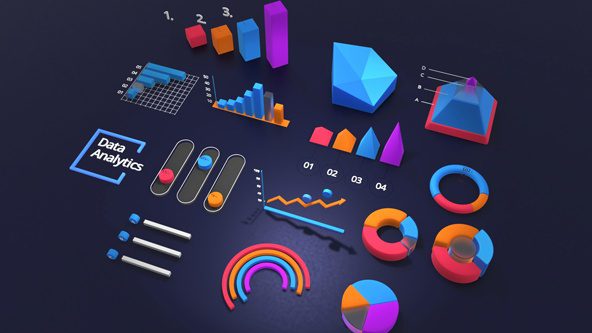Analytics and EBHR
Blog: Some Frequently Asked Questions about Data Literacy
How can you get your people more comfortable with data?
In conversation after a recent CRF event, Iain McKendrick (VP Strategy & Analytics, Volvo Group), Allie Boddington (Executive Director of HR Transformation, Oracle) and Nick Holley (Director of CRF Learning) discussed some key questions about data analytics in the workplace.
Allie, what impact are GDPR and other, similar legislation having on people analytics?
It’s important from a tech point of view to make sure the technology is there to support updated legislative changes. We are in an interesting and difficult place in the world today; there is a lot of data out there, and it is growing remarkably all the time. But it’s important for all businesses to closely manage and monitor the security of that data. It’s also important to keep abreast of relevant external research into the issues.
Has anyone seen building a community of people data ‘superusers’ across the business work well?
Iain: I’ve seen a Digital Data Academy in one business, where the business as a whole was focused on raising the bar with regard to data literacy. There were different levels of qualification and a real push for the whole business to become more data literate. The Academy was successful and appreciated by the people in this business. Another example I’ve seen is simply connecting with the business digital analytics team. Don’t just build HR champions or an HR network; though that is valuable too. But also ask: what can we get from the sales, the finance analytics teams? They’ve spent a longer time working in data science, so what advice can they give that you can bring back to HR?
Nick, what about a self-service approach in descriptive and diagnostic analytics, where the user becomes data literate (i.e. additional training)?
Totally agree that the challenge for HR isn’t to develop databases etc. held centrally but to make everyone in HR comfortable with data. You don’t have to be a data scientist, but you must see the importance of data. I think a pitfall we may have fallen into is we have relied on external research and using this to persuade, rather than investing in ascertaining internal data. And hence why we may not have sufficiently developed our own skills? I have for sure found that internal data gets far more traction than abstract empirical research… even if it says the exact same thing.
What have you found has worked best to build data literacy with HR teams?
Iain: If only there was a magic bullet and hey presto problem solved! Part of it comes from ongoing learning, but there are three things I would highlight: first, sponsorship makes a big difference. Are the CHRO and business leaders repetitively asking Business Partners or COE colleagues ‘what’s the data behind this?’. It’s about the CHRO and business leaders setting expectations. Second, I’ve found it useful to run regular briefing sessions for the HRBP community once a new product comes out, not only on the outcome / ‘so what?’ but also the ‘how we did it’. And third, start to recruit for it – high turnover in HR is unfortunate, but it also gives us the opportunity to hire for skills including data literacy.
Allie: I second Iain’s point around setting expectations – when the questions are being asked up front around data, the team will learn and adapt to provide it. I would also highlight the importance of taking the team on the journey of how interesting analytics really can be. Share with the HR team as much as the rest of the business and other people you are trying to influence. Portray it as something we can get excited about and the value HR can add; create some excitement, avoid presenting it as just a chore.
Iain: I think it is becoming more normative in HR to be comfortable with data, and that comfort is based on experience. But a few things I’ve seen that can help shift the dials: you can go direct to the business, but you have to do this carefully because it can make HRBPs uncomfortable; but also much of the work you do is in partnership with your HRBPs; so it’s partnering with the right people. Finally, because it can be so complex, it can look scary – making it simple is a great start to driving data curiosity in an HR function.
Read more from this event:
Post Meeting Notes: Persuasive Analytics: Influencing with Data, March 2022
UPCOMING CRF CONFERENCE:
Trading in the New
Business Landscape
Featuring Tom Standage, The Economist, delivering The Technology Challenge




